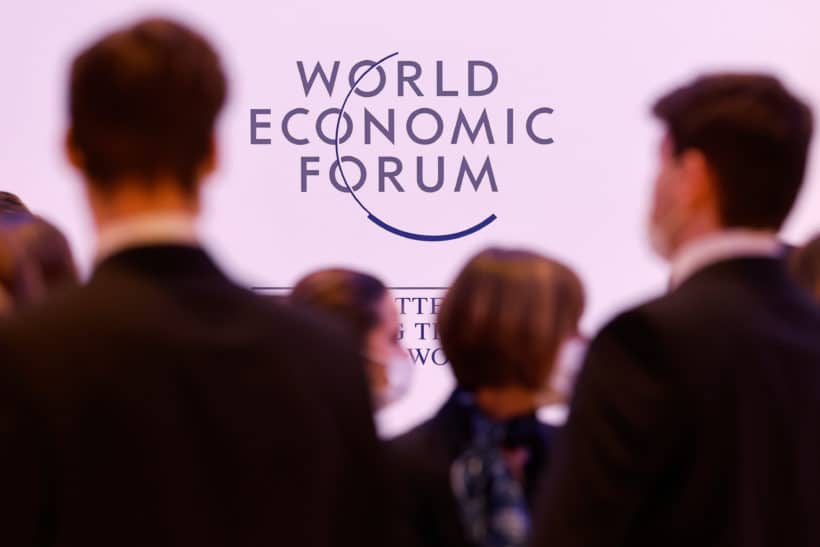
Davos, Switzerland, 16 January 2023 – A new report launched today at the World Economic Forum Annual Meeting 2023 shows how “early mover” countries can accelerate the food systems transformation.
The report, Food, Nature and Health Transitions – Repeatable Country Models, offers insights into the actions and investments that can accelerate a country’s transition towards food systems that deliver a stronger economy, better livelihoods for a more inclusive set of people, greater nutritional security and improved health, while causing a lower impact on the climate and nature.
“Transforming food systems provide healthy and nutritious diets and dignified jobs for farmers and producers. This report shows how economic development with environment protection supports communities in climate adaption and mitigation efforts,” said Gim Huay Neo, Managing Director of the World Economic Forum’s Centre for Nature and Climate.
The report, written in collaboration with Bain & Company, presents “repeatable models” from seven “early mover” countries in Africa, Asia, the Americas and Europe whose performance has been comparatively strong and whose examples and lessons are widely relevant. Their stories of transformation identify common, repeatable elements, including the most critical actions and investments for driving change and how they should be coordinated.
“Depending on the country context, different pathways could be adopted to transform our agrifood systems for improved food security and nutrition and assuring sustainability,” said Maximo Torero Cullen, Chief Economist at the UN Food and Agriculture Organization (FAO). “Scaling up climate resilience and strengthening our food environment to promote healthy diets are two key interventions with positive impacts on food security, nature and health.”
“When food fails, everything fails,” added Geraldine Matchett, Co-Chief Executive Officer and Chief Financial Officer of Royal DSM, and Co-Chair of the CEO Alliance on Food, Nature and Health. “We must work to transform our food systems to be resilient, sustainable and healthy.”
A number of countries, including Ghana, India and Viet Nam, have been able to evolve their food systems to improve a broader set of outcomes by unlocking the potential of small and medium-sized enterprises, particularly those that are farmer-allied and operating in local food chains.
Countries can also use innovation to improve productivity, sustainability and nutritional outcomes, as demonstrated in Algeria, which has improved food security in the face of significant constraints on water availability, while Viet Nam has sustainably intensified its rice production.
Farmers are more likely to adopt new practices if the economics work in their favour, according to the report, but making this happen requires action from many stakeholders. Examples in Canada and New Zealand illustrate how to scale adoption of nature-positive and climate-smart food production, particularly focusing on the case for an economic advantage for producers.
Each of the “early mover” country profiles in the report show how multiple actors and concurrent levers, across sectors, interact and coordinate to enable large-scale transformation over time. Collectively, they demonstrate the potential for these levers – if applied in tandem and with greater urgency – to accelerate country-led food systems transformation.
About the World Economic Forum Annual Meeting 2023
The World Economic Forum Annual Meeting 2023 convenes the world’s foremost leaders under the theme Cooperation in a Fragmented World. It calls on world leaders to address immediate economic, energy and food crises while laying the groundwork for a more sustainable, resilient world. For further information, please click here.
“Depending on the country context, different pathways could be adopted to transform our agrifood systems for improved food security and nutrition and assuring sustainability,” said Maximo Torero Cullen, Chief Economist at the UN Food and Agriculture Organization (FAO). “Scaling up climate resilience and strengthening our food environment to promote healthy diets are two key interventions with positive impacts on food security, nature and health.”
“When food fails, everything fails,” added Geraldine Matchett, Co-Chief Executive Officer and Chief Financial Officer of Royal DSM, and Co-Chair of the CEO Alliance on Food, Nature and Health. “We must work to transform our food systems to be resilient, sustainable and healthy.”
A number of countries, including Ghana, India and Viet Nam, have been able to evolve their food systems to improve a broader set of outcomes by unlocking the potential of small and medium-sized enterprises, particularly those that are farmer-allied and operating in local food chains.
Countries can also use innovation to improve productivity, sustainability and nutritional outcomes, as demonstrated in Algeria, which has improved food security in the face of significant constraints on water availability, while Viet Nam has sustainably intensified its rice production.
Farmers are more likely to adopt new practices if the economics work in their favour, according to the report, but making this happen requires action from many stakeholders. Examples in Canada and New Zealand illustrate how to scale adoption of nature-positive and climate-smart food production, particularly focusing on the case for an economic advantage for producers.
Each of the “early mover” country profiles in the report show how multiple actors and concurrent levers, across sectors, interact and coordinate to enable large-scale transformation over time. Collectively, they demonstrate the potential for these levers – if applied in tandem and with greater urgency – to accelerate country-led food systems transformation.
About the World Economic Forum Annual Meeting 2023
The World Economic Forum Annual Meeting 2023 convenes the world’s foremost leaders under the theme Cooperation in a Fragmented World. It calls on world leaders to address immediate economic, energy and food crises while laying the groundwork for a more sustainable, resilient world. For further information, please click here.